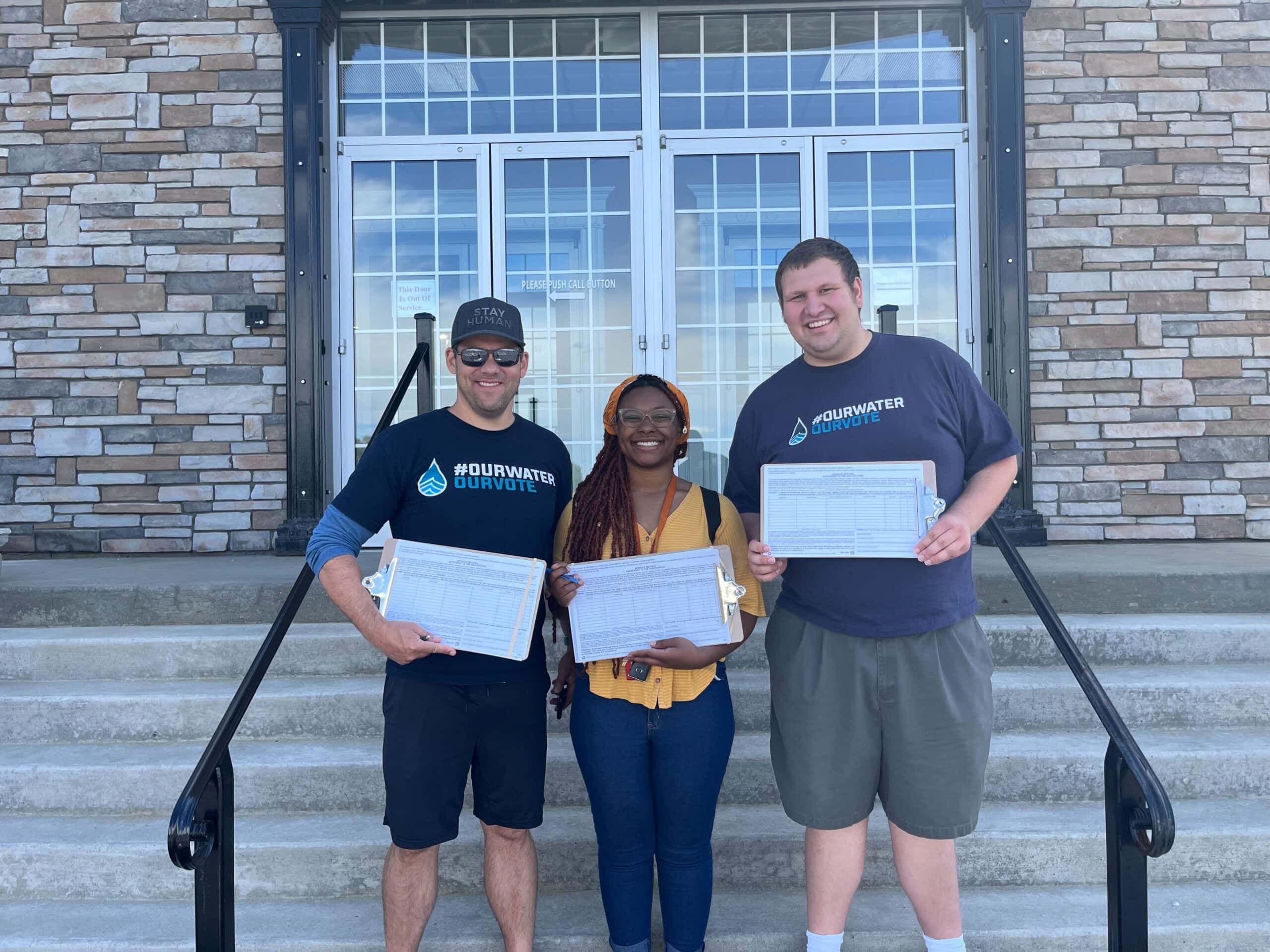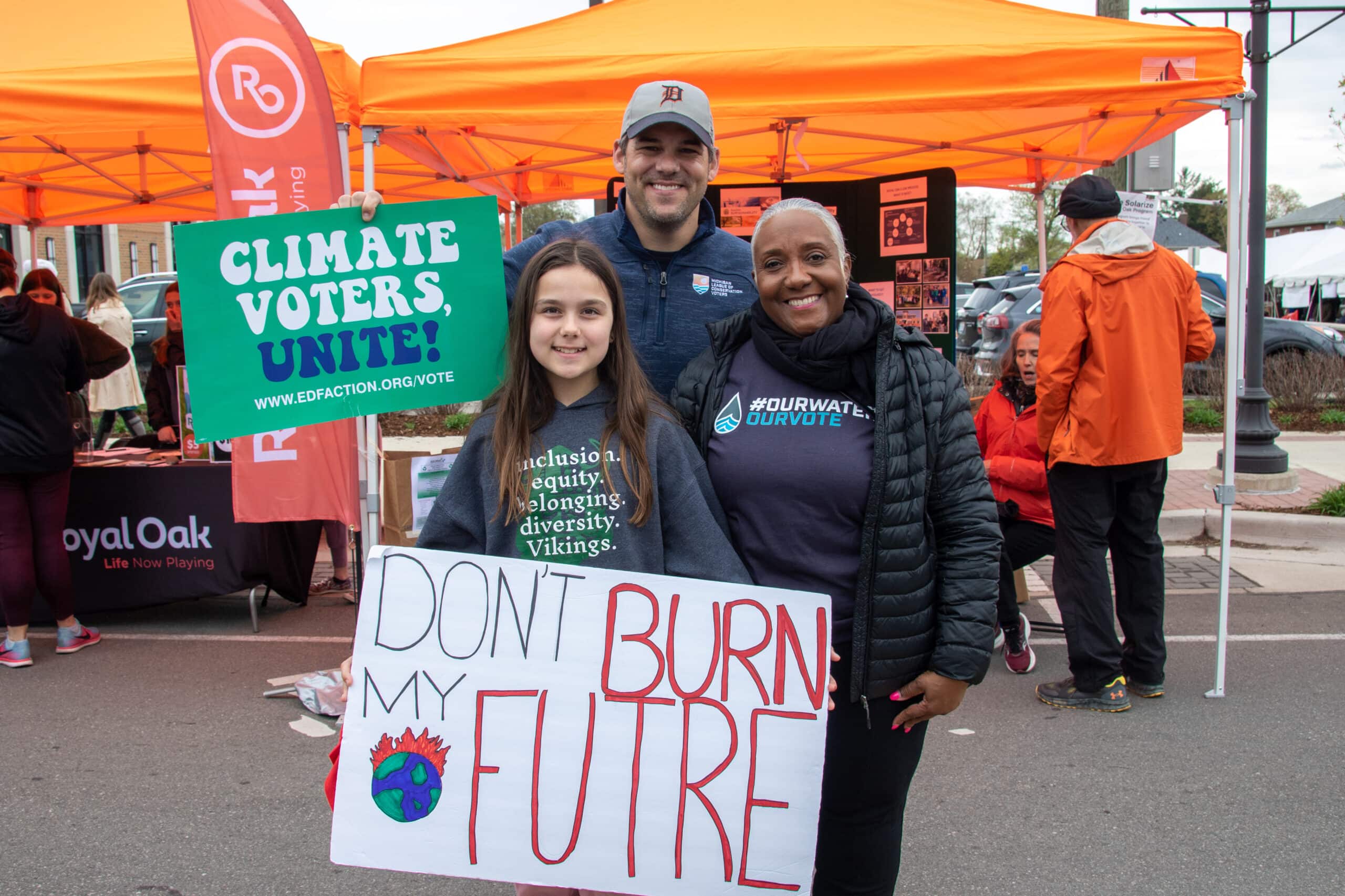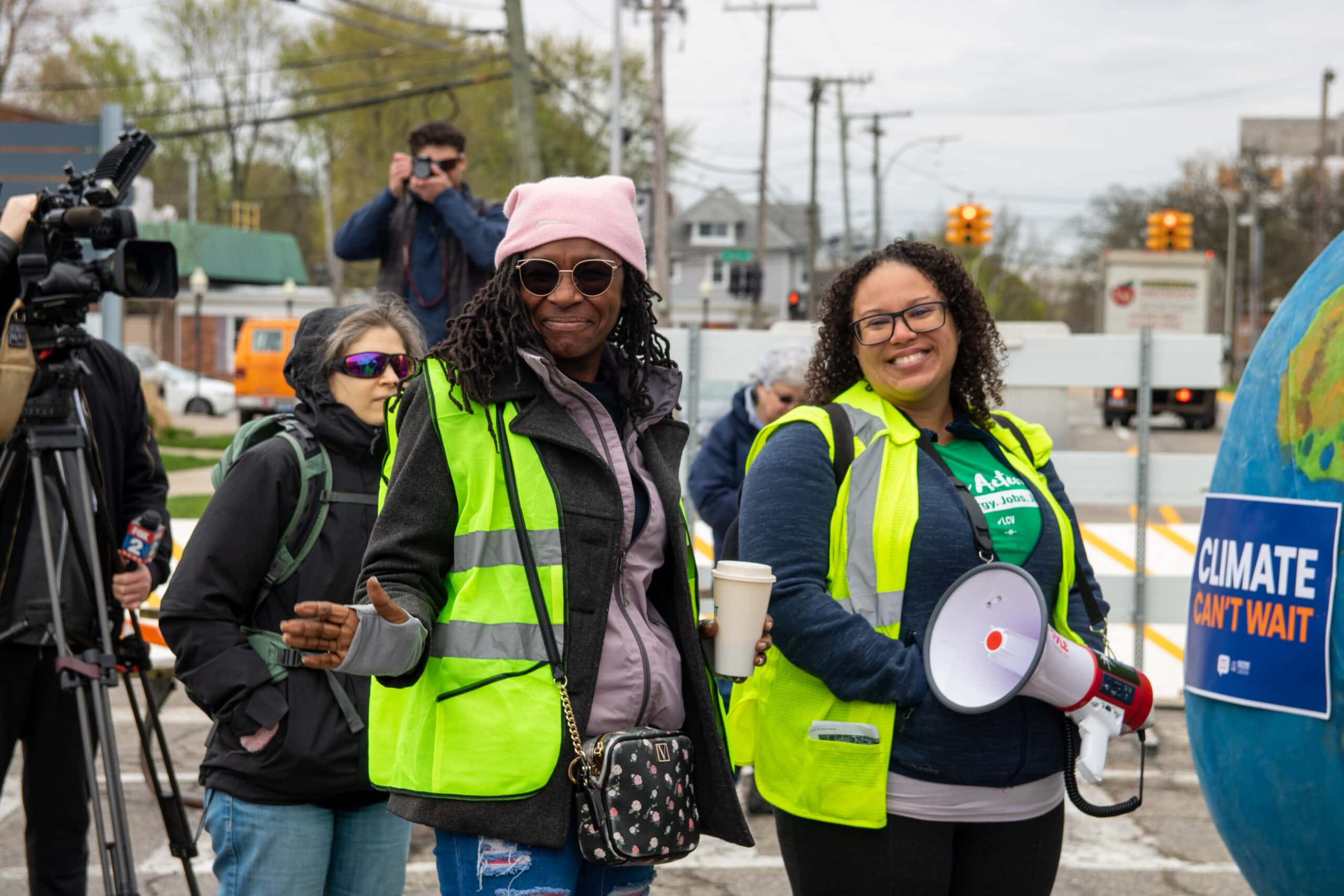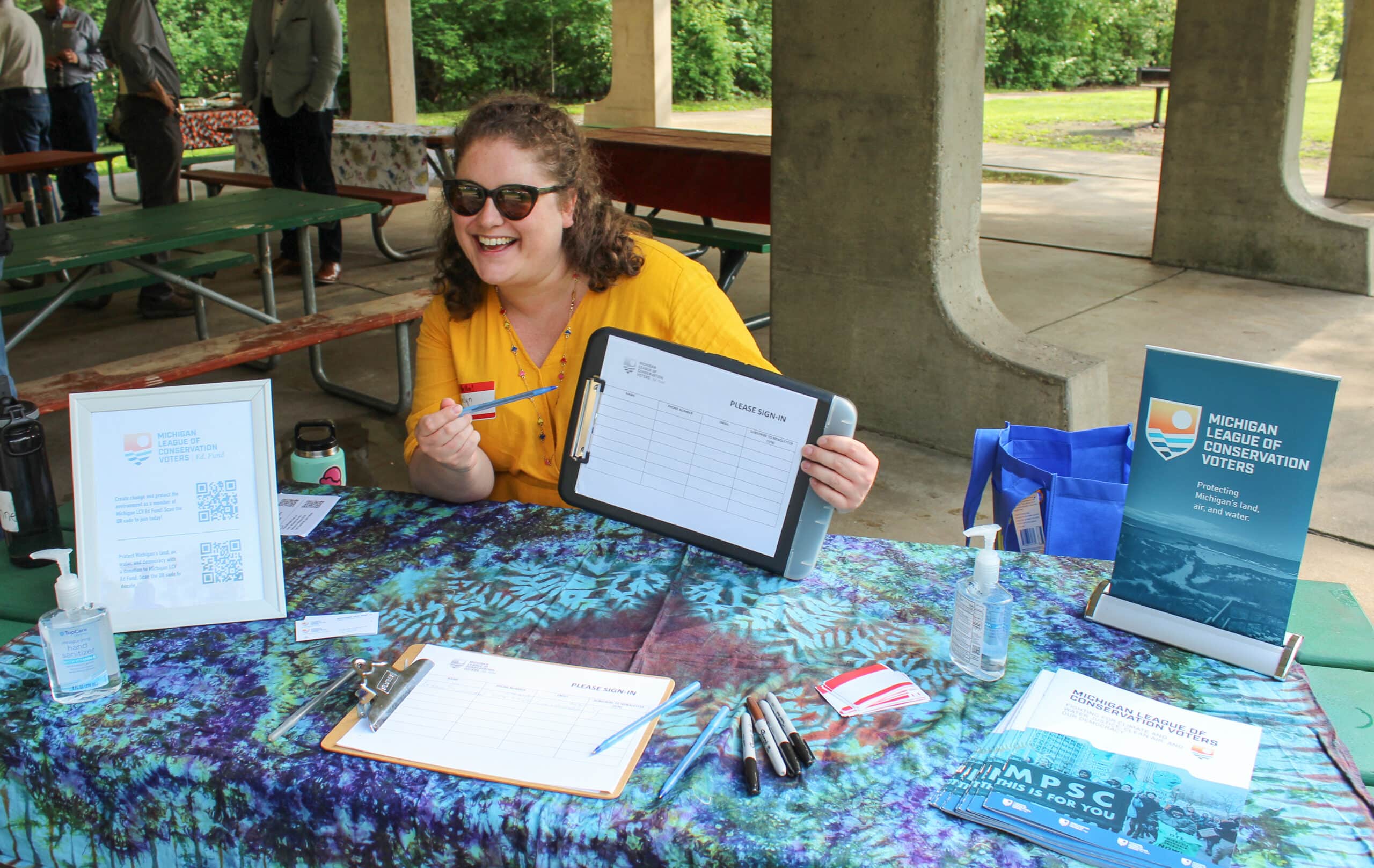Use our online action opportunities to advocate from anywhere on the latest, most critical land, air and water issues facing your community and our state.

Without people like you, we have no movement for change. Take your advocacy one step further and become a member of Michigan LCV.
With your help, we can elect environmental champions into office. We can push decision-makers towards equitable and just climate solutions. We can hold corporate polluters accountable for the damage they’ve caused. We can make strides in dismantling systemic oppression by protecting voters’ rights. And we can make lasting positive change in our communities. But we can’t do any of this without you.
Whether it’s contacting your representative, supporting Michigan LCV with a donation, or giving your time and energy to knock doors for candidates — members are the foundation of this organization.
Join The Movement
Get exclusive, real-time updates about environmental action in Lansing — PLUS ways you can take action straight to your inbox.


Attend an Event
Check out upcoming opportunities to meet your fellow Michigan LCV members and work together for stronger protections for land, air and water.

Volunteer
Join our teams across the state who are working together to elect strong leaders to office and to pass stronger laws to protect our land, air and water.

Explore Ways to Give
Learn more about how you can financially support the organization, at every level. Your contribution helps power this work.
You Have the Power to Inspire Change.
Once a national leader in environmental protection and conservation, Michigan is now falling behind and our families and communities are suffering as a result.
By working together we can make protecting Michigan’s land, air, and water political priorities once again.
